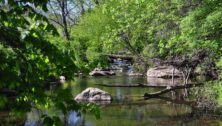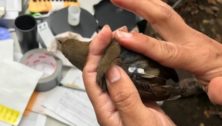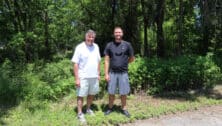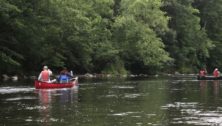Willistown Conservation Trust, Natural Lands Work to Reverse Decline of Grassland Birds in Chester County
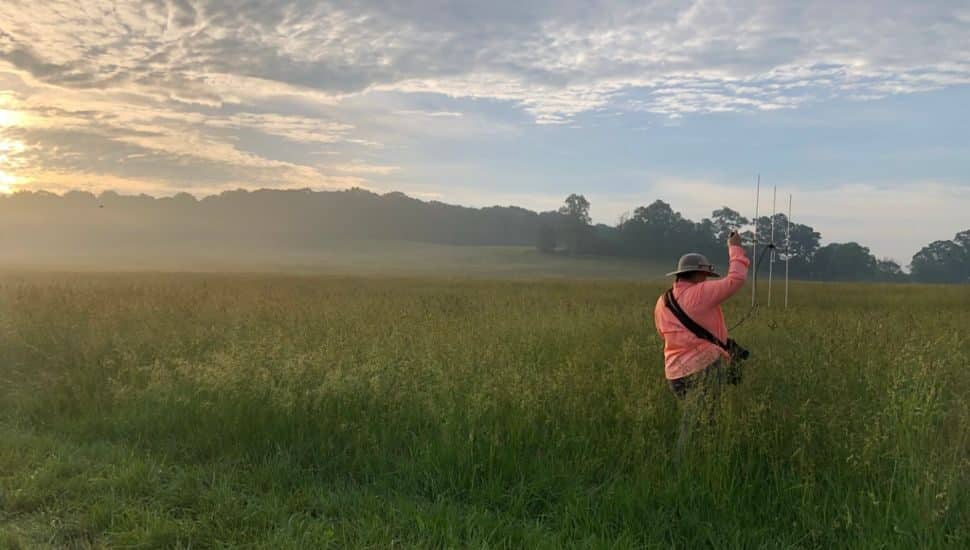
The Cornell Land Trust Bird Conservation Initiative has awarded Willistown Conservation Trust (WCT) and Natural Lands a $25,000 grant to promote grassland conservation in the greater Doe Run area of Chester County. The Cornell Land Trust grant will support the Grassland Bird Collaboration (GBC) — launched by WCT in 2022 — and their goal to create a grassland bird conservation area made up of working landscapes and existing preserves in southern Chester County.
This “working conservation landscape” will benefit grassland bird species that have been in decline due to changes in farming practices and increased land development. The GBC will create a focal area where partners can work together to address these issues affecting grassland birds, while maximizing conservation and minimizing disruption to agricultural production.
One of the most vital land management practices is delaying mowing during the breeding period. Mowing before birds complete their nesting cycle removes available habitat. Implementing a “no-mow” period when there are babies and fledglings in a field allows young birds to develop in a safe environment before the nesting grounds are disturbed.
So far, the GBC has partnered with landowners and farmers to enroll more than 750 acres of privately held land in “bird-sensitive” field management practices to accommodate the focal species’ annual breeding cycle. This enthusiasm is largely thanks to WCT having built relationships with these landowners and farmers since 2014. Additionally, Natural Lands will employ best management practices, monitor their nature preserves — including Stroud Preserve, Cheslen Preserve, and Bryn Coed Preserve — during breeding season, and promote these practices through demonstration areas and outreach efforts.
Chester County is well positioned to support this conservation effort largely thanks to local mushroom farms’ demand for mulch hay. Mushroom houses prefer later-season hay that has been left to mature and dry in the fields. Providing for the mushroom market means there is less disruption to farming practices and to the grassland birds during their crucial breeding period.
“The unique local agricultural market provides a great opportunity to work with farmers to meet our conservation goals,” said Zoë Warner, project manager for the Grassland Bird Collaboration. “This enables us to increase the value of conserved land within a large contiguous preservation belt. The land will not simply be ‘open space.’ It will provide valuable and essential breeding grounds to help reverse the precipitous decline of grassland birds.”
Learn more at Willistown Conservation Trust.
Connect With Your Community
Subscribe to stay informed!
"*" indicates required fields



























![95000-1023_ACJ_BannerAd[1]](https://vista.today/wp-content/uploads/2023/03/95000-1023_ACJ_BannerAd1.jpg)


















